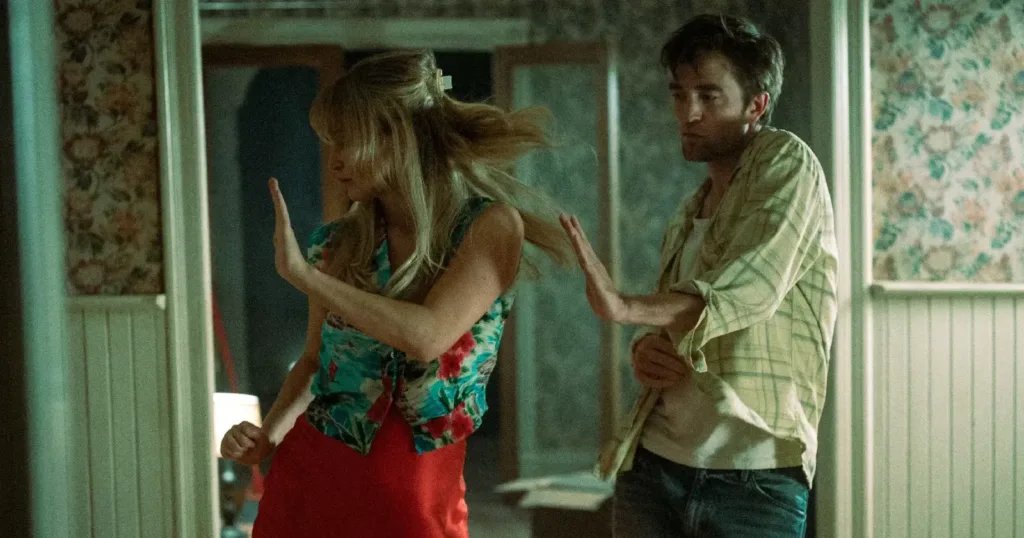Lynne Ramsay’s Die, My Love debuted in competition at Cannes on May 17, 2025, depicting a new mother’s descent into postpartum psychosis through Jennifer Lawrence’s raw performance. Lawrence, drawing on her own experiences as a mother of two, described the role as “heartbreaking” and “isolating,” underscoring the film’s unflinching portrayal of maternal mental health.
Early reactions ranged from standing ovations to critiques of narrative coherence, while industry observers noted Ramsay’s signature visual style and the film’s $24 million Mubi distribution deal as markers of its high stakes. International reviews—spanning Vogue’s mixed appraisal to Italian criticism praising its “feroce sinfonia” of motherhood—highlight the polarizing impact of Ramsay’s stark approach. Below is a structured account of the film’s background, festival reception, thematic resonance and wider implications.
Die, My Love premiered May 17 in Cannes’ main competition, marking Lynne Ramsay’s return with a psychological drama centered on a new mother’s unraveling, played by Jennifer Lawrence.
Ramsay co-wrote the screenplay with Enda Walsh and Alice Birch, adapting Ariana Harwicz’s 2017 novel about a woman’s psychosis after childbirth. The project, backed by producers including Martin Scorsese and Lawrence herself, enlisted Seamus McGarvey as cinematographer and Toni Froschhammer as editor, reflecting a high-caliber creative lineup. In April, 193 handled international sales before Mubi secured North American and multiple-territory rights in a $24 million deal—its largest acquisition yet—committing to a 45-day, 1,500-screen U.S. run.
The film drew a nine-minute standing ovation on the Croisette, signaling strong audience engagement. On social media, Die, My Love opened at 90 percent on Rotten Tomatoes, with fans lauding Lawrence’s “soul-bearing volatility” and Pattinson’s supportive presence. Conversely, Vogue noted that Ramsay’s narrative felt “provocative yet hollow,” suggesting the screenplay sometimes failed to sustain its intense premise.
Lawrence, a mother of two, said embodying Grace required channeling the “heartbreaking” isolation of postpartum depression, a choice that informed her visceral performance. Critics hailed the film’s candid exploration of maternal psychosis, with Screen International calling Lawrence “the match that lights Ramsay’s gripping, slow-burn fifth feature”.
Trade analysts view Ramsay’s return as a calculated risk: her films are acclaimed but polarizing. Box-office forecaster Anita Mehta observed that “Ramsay’s uncompromising vision can limit mass appeal, yet awards buzz may follow Lawrence’s searing turn”. Meanwhile, scholarly commentators highlight the film as part of a wider cinematic reckoning with maternal mental illness, noting its timeliness amid growing public discourse.
In Italy, critics diverged sharply: Coming Soon’s Mauro Donzelli gave it 2.5/5 stars, calling the drama “relentlessly violent,” while CineFacts’s Teo Youssoufian praised it as a “disturbing symphony on motherhood”. Mubi’s $24 million acquisition underscores confidence in the film’s art-house and awards prospects, as well as its potential resonance with global audiences sensitive to mental-health narratives.
Ramsay’s trademark reliance on imagery over dialogue remains evident: Seamus McGarvey’s sweeping compositions and Alexeï Aïgui’s score create an immersive, disquieting atmosphere without exposition. Editor Toni Froschhammer’s deliberate pacing amplifies Grace’s psychological collapse, aligning form with subject matter in a manner characteristic of Ramsay’s prior work (e.g., We Need to Talk About Kevin).
